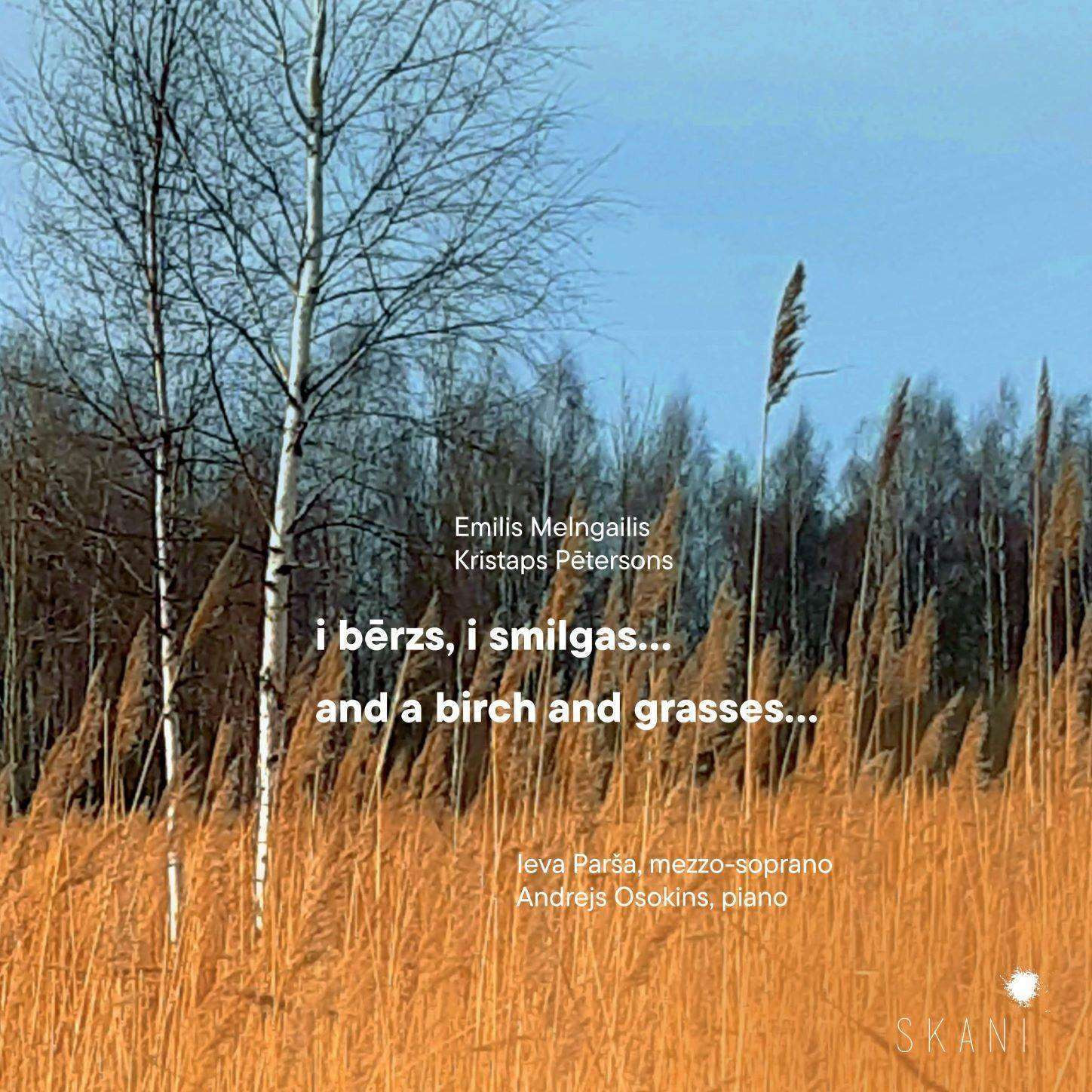Best known as a folklorist and writer of choral music, Latvian composer Emils Melngailis was an early supporter of Mussorgsky, and this new disc pairs his intriguing songs with those of a younger generation Latvian composer
Emils Melngailis was a Latvian composer and folklorist, perhaps best known for his choral music and his involvement with the Latvian Song and Dance Festival. A new disc from Latvian label Skani, i bērzs, i smilgas... (and a birch and grasses...) brings out another side to the composer as mezzo-soprano Ieva Parša and pianist Andrejs Osokins perform a selection of songs by Emils Melngailis alongside music by contemporary composer Kristaps Pētersons.
Emils Melngailis is an intriguing figure. Born in Latvia (then part of the Russian Empire), he studied at the St Petersburg Conservatory. But as a student Melngailis came into conflict with his teacher Rimsky Korsakov as Melngailis condemned the way Rimsky Korsakov was adjusting (correcting) Mussorgsky's harmonic language in his ground-breaking edition of Mussorgsky's Boris Godunov. As a result Melngailis had to leave the conservatory and complete his studies privately. At the time, Mussorgsky's original orchestration was considered lost, and Melngailis would premiere his own orchestration in Riga in 1924, attempting to return the work to something like what the composer intended.
So, whilst folk-music and folk-idioms play a strong role in Melngailis' songs, there are also other elements. Some songs seem to shade into a style which is not that remote from folk-influenced English song of the early 20th century (and of course Melngailis belonged to the same generation as composers such as RVW). But whilst, the folk melodies weave their way around, it is often the words that we notice. Some are traditional but many are not, and clearly for Melngailis the words and the Latvian language are important.
Yes, we get folk songs and folk dances, but in many songs he eschews this sort of display. The piano parts can be simple and expressively supportive whilst the vocal line is closer to plain arioso, allowing the musical expression of the text to speak. It doesn't sound like Mussorgsky, but the influence of the composer's restraint and refraining from excessive embellishment seems clear.
Though Ieva Parša is a mezzo-soprano, she sings these songs with a lovely light, bright, focused voice and allows Melngailis' concentration on the words to come over. Pianist Andrejs Osokins provides fine support and in the moments when Melngailis does allow the piano more of a role, Osokins charms and he is allowed to come to the fore in Melngailis' delightful piano solo, Vientuliba no cikla klavierem Mazie meti (Loneliness from cycle for piano Little Sketches).
Born over 100 years after Melngailis, the music of Kristaps Pētersons is vastly different in its concerns. He is both a composer and performer and plays bass in Kremerata Baltica. His Music for Piano was written to celebrate the 250th anniversary of Beethoven's birth. A substantial piece, its concerns seem to be for texture rather than harmonic content. The work begins with intense, placed individual notes creating a slow moving texture. As the work develops, Pētersons pushes the piano to its limits in some powerful climaxes (and it has to be admitted that the recorded piano sound is not ideal), but all the time were are aware of the composer's intriguing command of texture.
Pētersons song Dziesma ar Eduarda Veidenbauma dzeju (A Song with Poetry by Eduards Veidenbaums) sets a popular Latvian poem in a work that combines a strongly expressionist yet lyrical vocal line with pitched and unpitched piano sounds to create a strong atmosphere with a rather disturbing element to it, reflecting the poem's expression of lost hopes. Pētersons song Grasses sets his own words, just three in fact, 'grasses yearnings grasses' for voice alone, combining sung elements with spoken, whistling and vocalise to create a striking musical interpretation of the ideas behind the words.
This is a fascinating disc, and the well considered programme allows us to experience a wide range of Melngailis' music and to come to know the composer and recognise a particular style. Song was perhaps not the most important part of Melngailis output, but the combination of his folk interests with the influence of Mussorgsky creates some striking moments. By including the works of contemporary composer Kristaps Pētersons, the performers provide a welcome element of bite and grit, Pētersons' gnarlier style of writing complementing and contrasting with Melngailis.
The CD booklet begins by commenting that Melngailis was born the same year as Arnold Schoenberg, but it is perhaps rather more helpful to consider that Melngailis was born just two years after RVW and that his approach to song-writing has a lot in common with RVW and his English colleagues, yet with that admixture of Mussorgsky too.
★★★½
Planet Huggil, 06/ 2022
ŠEIT
www.planethugill.com

